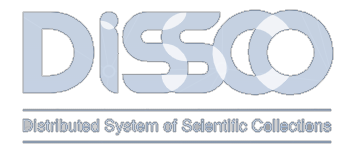|
Description
|
Introduction and study aims Discovered 30 years ago, mammalian extracellular vesicles (EVs), including exosomes, microsomes and apoptotic bodies have shown to be implicated in a novel form of cell-cell communication; and thus represent an important and rapidly growing research field in biology and translational sciences. More recently, plants were also shown to secrete membrane-bound particles. Today, two classes of EVs have been isolated from plants: apoplastic vesicles from rice, sunflower and tomato; and exosome-like particles from fruit juices such as grapes and grapefruits. It is well established that a plant-derived diet has great influence on regulation of homeostasis of the cells lining the digestive system. Deregulation of intestinal epithelial cell homeostasis, for example, mediates chronic inflammation (like inflammatory bowel diseases), increased propensity to develop infections and cancer. In a recent study, Mu et al reported that edible plant derived exosome-like nanoparticles can be taken up by intestinal macrophages and stem cells where they induce anti-inflammatory processes. Interspecies communication between plant and mammalian cells through nanoparticles is a new and very interesting field which opens up new avenues for further studies. In contrast to the mammalian EVs there is a limited information available about the bio-cargo of plant derives nanoparticles. Here we propose to study the molecular cargo of EVs isolated from fruit juices of the citrus family. The molecular data will be used to answer the following questions: i.) what is the molecular cargo of citrus derived EVs ii) what are the differences among EVs isolated from different citrus species iii.) how much does the protein and lipid cargo of plant EVs differ from that of mammalian cells and, iv.) what are the possible interlocutors involved in the crosstalk between plant EVs and mammalian cells The obtained data sets will be deposited into two manually curated web-based databases, EVpedia and Vesiclepedia, that are publicly available and at the moment lack such data. Motivation for co-operation The two research groups, Mass Spectrometry and Proteomics Laboratory at IBBR-OUS-Napoli and Core Technologies Centre of the Hungarian Academy of Sciences (CTC) are working in complementary fields, and the principal investigators (PIs) have a long-standing collaboration. PIs already led joint projects in the past and have published together. Recently, they have been collaborating in the characterization of mammalian EVs using mass spectrometry and chromatography-based techniques. They both have relevant expertise in the food sector as well.PIs recently launched collaborations with the research group at IBBR-OUS Perugia, Italy and the research group of Cell- and Immunobiology of the Department of Genetics, Semmelweis University, Budapest, Hungary on the exploitation of extracellular vesicles. The expertise of the principal and partner investigators and their collaborators in the exosome field is well-documented by an existing patent application, scientific papers and book chapters published in the last five years. The relevant expertise and the available instrumentation put the CNR-MTA team, the proponent of this project, in an excellent position to establish joint research collaboration through NutriC@rgo. The ultimate aim of the project is to set up a collaborative network in order to prepare successful applications of European collaborative research projects under Horizon2020 collaborative Research and Innovation projects and research networks (COST actions) |




